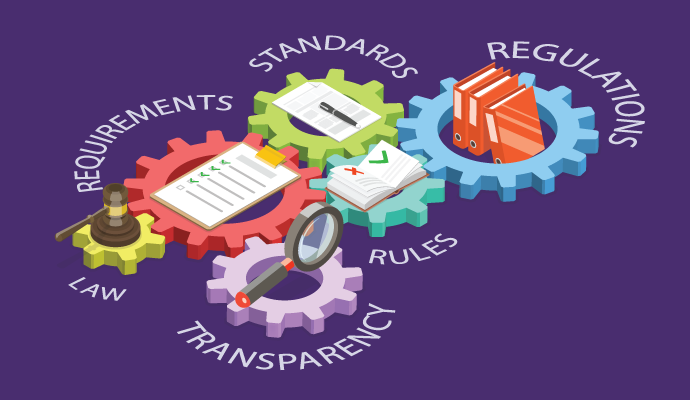Key Waivers, Regulatory Flexibility for Providers During COVID-19
President Trump declared COVID-19 a national emergency. Here are the key regulatory flexibilities the state of emergency will give providers to help them manage the outbreak and get paid for care.

Source: Getty Images
- President Trump declared the COVID-19 outbreak a national emergency last week in a move that will allow HHS to enact 1135 waivers and regulatory flexibilities to help hospitals activate emergency preparedness plans while staying compliant.
During the March 13 announcement, the president ordered hospitals to put emergency preparedness plans in action as the number of infected Americans continues to rise rapidly. He also assured providers and patients a smooth transition to emergency workflows.
“We'll remove or eliminate every obstacle necessary to deliver our people the care that they need and that they're entitled to. No resource will be spared, nothing whatsoever,” Trump said during the announcement.
In addition to unleashing $50 billion in federal disaster funds, the emergency declaration will also provide the HHS Secretary with more authority to waive certain Medicare, Medicaid, and Children’s Health Insurance Program (CHIP) requirements, including Conditions of Participation (CoP).
Following the president’s announcement, CMS unveiled immediate steps and regulatory waivers it will enact to give providers, healthcare organizations, and states “maximum flexibility.”
“It is vital that federal requirements designed for periods of relative calm do not hinder measures needed in an emergency,” stated CMS Administrator Seema Verma in the agency’s announcement. “The nationwide waivers we are activating today will be a godsend for those on the frontlines of the fight against this new virus.”
In the following article RevCycleIntelligence will break down the 1135 waivers and other regulatory flexibilities CMS is enacting to ease certain requirements for providers during the COVID-19 outbreak.
Medicare waivers and flexibilities for provider organizations
In light of the COVID-19 outbreak, CMS is temporarily waiving or modifying certain Medicare, Medicaid, and CHIP requirements to relieve the administrative burden of compliance during this time of emergency, the agency announced last week.
The agency will also issue several blanket waivers, Verma stated. Those waivers and flexibilities include:
- Waiving 3-day prior hospitalization rule for coverage of a skilled nursing facility (SNF) stay
- Waiving 25-bed requirement to classify as a critical access hospital and that the length of stay be limited to 96 hours
- Allowing acute care hospitals to house acute care inpatients in excluded distinct part units, where the distinct part unit’s beds are appropriate for acute care inpatient
- Waiving the 60-percent rule for inpatient rehabilitation facilities
- Permitting long-term care hospitals to exclude patient stays from the 25-day average length requirement if the admit or discharge is ordered due to the emergency
- Relaxing standards for lost, destroyed, irreparably damaged or otherwise unusable durable medical equipment, prosthetics, orthopedics, and supplies
The blanket waivers and flexibilities will not only increase capacity for hospitals and other providers on the frontline of the outbreak, but also ensure the providers get Medicare reimbursement for furnishing care during the uncertain time.
Provider enrollment flexibilities
In addition to Medicare waivers and flexibilities, CMS is also modifying provider enrollment requirements to ensure patients have access to providers during the national emergency.
The US is already facing a significant shortage of physicians, and public health officials fear that the shortage could impede effective treatment of the expected influx of patients with COVID-19.
In an effort to boost access to care, CMS announced last week that it will “temporarily suspend certain Medicare enrollment screening requirements including site visits and fingerprinting for non-certified Part B suppliers, physicians and non-physician practitioners.”
For the time being, CMS is also waiving requirements that out-of-state providers be licensed in the state where they are providing services when they are licensed in another state. The waiver will apply to both Medicare and Medicaid, the agency highlighted.
Additionally, CMS is implementing actions to streamline the provider enrollment process. The agency has committed to expediting any pending or new applications from providers and postponing all revalidation actions.
The agency will also establish a toll-free hotline for non-certified Part B suppliers, physicians, and non-physician practitioners to enroll and receive temporary Medicare billing privileges.
Medicaid flexibilities and waivers
While CMS is issuing blanket waivers and flexibilities for Medicare providers, some states are following suit and implementing key regulatory flexibilities for local providers.
The national emergency declaration enables CMS to grant state and territorial Medicaid agencies a wider range of flexibilities under section 1135 waivers, the agency explained last week. Per CMS, examples of flexibilities available to states through section 1135 waivers include:
- Ability to permit out-of-state providers to deliver care
- Temporarily suspend certain provider enrollment and revalidation requirements to promote access to care
- Permit providers to provide care in alternative settings
- Waive prior authorization requirements in fee-for-service programs
- Temporarily suspend certain pre-admission and annual screenings for nursing home residents
Florida is the first state to leverage the opportunity. CMS announced on March 17 that Florida’s 1135 Medicaid waiver will implement key flexibilities for providers in the state, including waiving certain prior authorization requirements for needed services, streamlining provider enrollment processes, allowing care to be rendered in alternative settings in the event a facility has to evacuate to unlicensed facilities, and suspending certain nursing home screening requirements.
CMS expects more states to apply for the 1135 waiver as local providers face a significant uptick in COVID-19 cases in the coming weeks.
